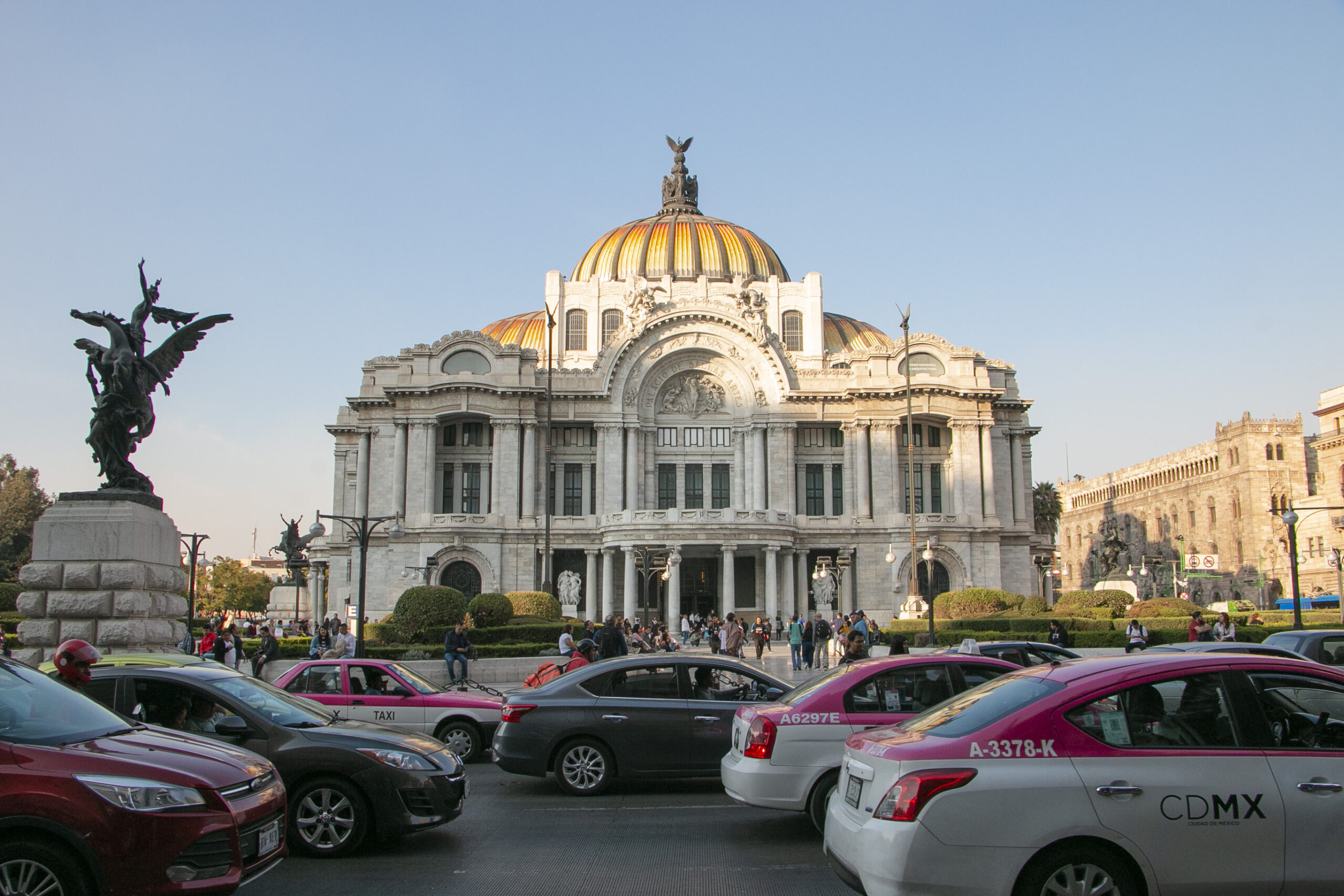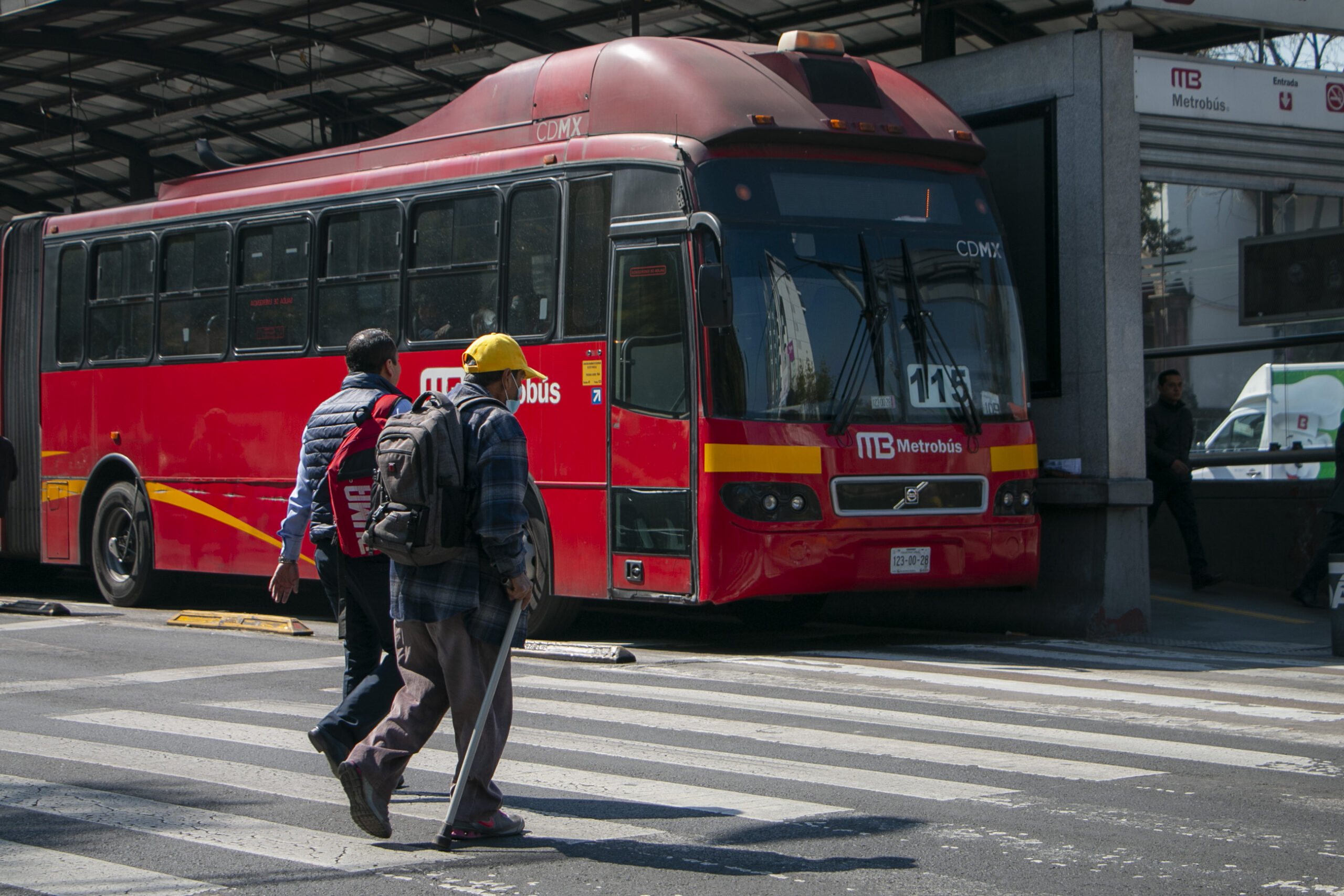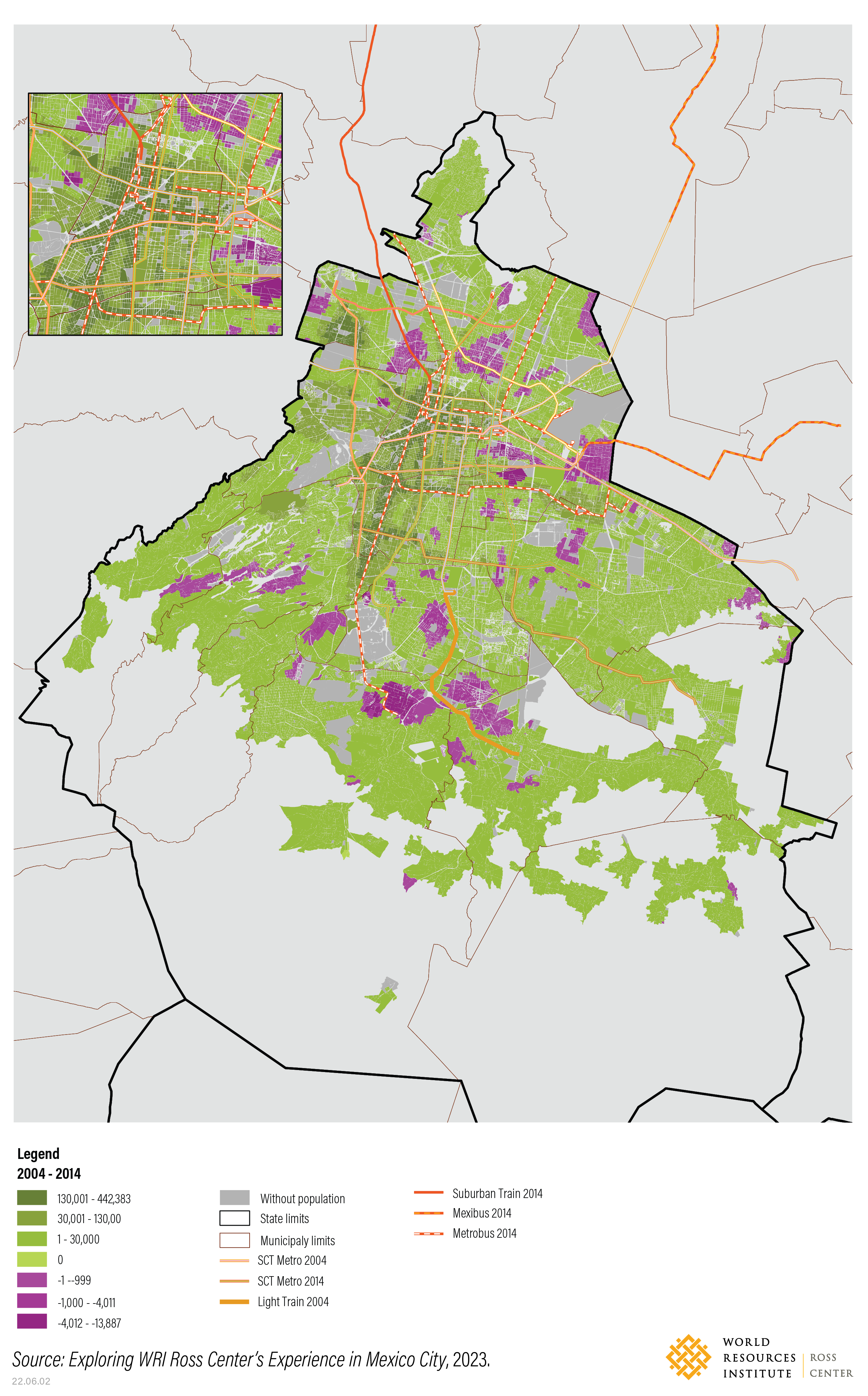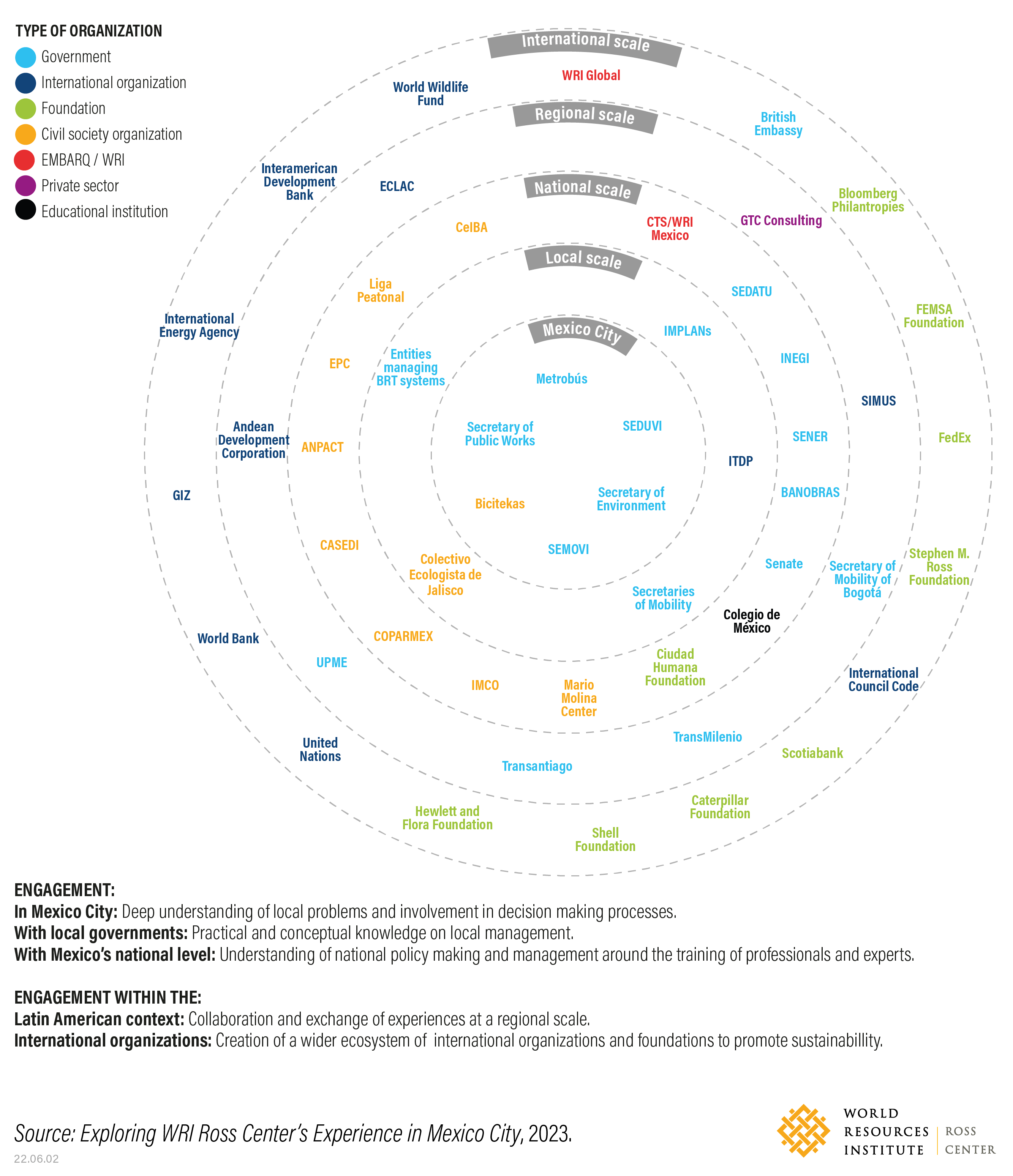
Achieving transformation in today’s cities requires the active and ongoing participation of many stakeholders, from the public sector, to civil society, private companies and academia. Non-government organizations can play a crucial role due to their commitment to improving the quality of people’s lives, providing additional resources and avenues for strengthening technical capacities, and assisting with the sustained support and long-term guidance that these transformation processes require.
WRI Ross Center for Sustainable Cities has built a longstanding collaborative relationship with many cities, but Mexico City, recently profiled as a case study in the “Deep Dive” approach to creating transformative change, is a special case.
WRI began its collaboration with Mexico City two decades ago during the development and implementation of one of the city’s most significant strategic projects: the Metrobús bus rapid transit (BRT) system. Subsequently, the scope of collaboration between the city and WRI México has expanded, eventually encompassing topics such as water resilience, energy efficiency, road safety and land use, to mention a few.
WRI’s experience in Mexico City has facilitated the growth and transformation of both the city and our organization, and Metrobús in particular has created a positive multiplier effect showing the potential for urban transformation not only at the local level but also nationally and beyond.
From Metrobús to National Change

WRI México, then known as the Center for Sustainable Transport in Mexico, began working with multiple actors and interests for the design and implementation of Metrobús in 2002. The Environmental Secretariat of Mexico City, the Ceiba Foundation, the Shell Foundation and transportation experts who had implemented similar BRT systems in Curitiba and Bogotá, came together to provide solutions to two prevailing issues: poor air quality and institutional disorganization of public transportation.
Metrobús Line 1 began operating in 2006 with WRI assisting with operational training, management logistics, fleet maintenance and communications strategy. Since then, the system has expanded to seven lines.
Metrobús, along with economic growth and other factors, contributed to two major transformations for residents of Mexico City. Air quality improved, with a 60% reduction in PM10 levels between 1990 and 2015. And access to jobs and opportunity improved, with the average number of available jobs within a 30-minute travel distance from homes (whether single or multimodal, with or without public transportation) increasing 77% between 2004 and 2014.
Changes in Job Accessibility in Mexico City, 2004-2014

Metrobús has acted as a catalytic project for the city and beyond, bringing together stakeholders and triggering other changes in sustainable and non-motorized transportation. Although Mexico’s first BRT system emerged in the city of León in 2003, it was only after Metrobús that the adoption of BRT in other Mexican cities accelerated. WRI participated in the design and implementation of Macrobús in Guadalajara in 2007, for example, and provided guidance for the creation of the Federal Support Program for Mass Transportation (PROTRAM), which financed mass transportation projects in cities such as Chihuahua, Puebla, Ciudad Juárez, Pachuca and Acapulco.
As WRI expanded its work across the country, the organization embraced the complexity of BRT systems and became proficient in navigating the associated technical, cultural and political challenges of planning and implementing them.
Building on this experience, WRI facilitated the creation of the Mobility Authorities Association (AMAM), a coalition of civil society organizations focused on sustainable urban mobility. With the initial goal of influencing the public agenda and engaging local authorities across the country, AMAM was officially established in 2017 and has promoted the exchange of knowledge and experiences to enhance the institutional and technical capacity of dozens of cities and states. Currently, the association has the participation of 26 states and four municipalities, with achievements such as crafting guidelines for the national General Law of Mobility and Road Safety, assessing the impacts of the COVID-19 pandemic on public transportation, and contributing to the design of the work-in-progress National Policy for Collective Public Transportation.
Towards a Holistic Vision of the City
Concurrently, the lessons learned by engaging with this complex ecosystem of public, private and civil society organizations propelled changes within WRI toward a broader vision of success and increasing institutional expertise in areas beyond transport, including urban development, air quality, energy efficiency, climate change adaptation and mitigation, governance, green infrastructure and water resilience. And given the close relationship with the government of Mexico City, it became possible to expand our partnership to other areas of sustainability.

In 2016, Mexico City joined the Building Efficiency Accelerator (BEA) for the adoption of energy conservation codes for buildings in construction regulations. With WRI technical support, the government conducted pilot retrofit projects and selected, assessed and analyzed the costs and benefits of energy transformation. Currently, 10 subnational entities across the country take part in the BEA: Mexico City, Monterrey, Mérida, San Pedro Garza García, and the states of Sonora, Nuevo León, Jalisco, Campeche, Yucatán, and Quintana Roo. In 2020, WRI launched the Building Energy Efficiency Challenge and 20 companies currently participate, aiming to achieve a reduction of 825 tons of carbon dioxide and an economic savings of 3.1 million pesos by 2024.
Similarly, WRI has launched new water and green infrastructure projects, recognizing the need for nature-based solutions to address water scarcity and urban decay. The Cooperative Action System, in the neighborhood of Tacubaya in Mexico City, was the first in this line of work, involving the creation of an urban renewal proposal for the restoration of green and gray infrastructure and the enhancement of quality of life for residents in the area. This project, first facilitated in Monterrey, coincided with the development of the Green-Gray Assessment Methodology for Water Security, and informed institutional growth and future work. Subsequent projects included the Coapa Water District in Monterrey, aimed at improving water management through green and gray initiatives to promote local management of water and reduce risks of flooding and damage to public and private property, as well as the implementation of nature-based solutions for water resilience in Xalapa.
Key Elements of the Deep Dive Model
Through this experience and others like it, WRI has internalized many lessons on how urban and social transformation can occur through the concerted, coordinated and long-term efforts of different sectors and organizations. What began as direct engagement with different stakeholders in Mexico City and Bengaluru has become a more structured approach to collaboration and providing support in over 20 cities worldwide.
The most relevant elements of WRI Ross Center’s Deep Dive Cities Initiative are:
- Building trusted relationships through technical expertise, understanding of political and institutional contexts, and our ability to foster fruitful collaborations.
- Operating within an ecosystem of organizations and agents of change to share knowledge and learning while promoting local capacities.
- Having financial and institutional flexibility to work beyond and across individual projects, creating larger impact, and generating adaptable strategies for unique contexts, challenges and opportunities.
This strategic model, pioneered in Mexico City, is now helping many cities transcend individual projects to promote transformative city-wide change across different systems, including transport, water, energy and land use.
—
WRI continues to transform itself to meet the changing challenges of the current world, guided by a new Strategic Plan aimed at promoting transformations that achieve impact for people, nature and climate together. Catalytic projects that can jump start longer-term relationships, combined with the availability of flexible funds and institutional capacity to gain expertise in new areas, we believe are all key elements to drive such transformative change – in cities but also in countries, regions and the world.
We thank and acknowledge the contributions of Robin King, Octavio Molina, Fairuz Loutfi, David Bronzwaig, Jimena David and José Juan Hernández to this blog.
Anamaría Martinez is a Research Analyst for WRI México.
Carina Arvizu is Director of Cities for WRI México and WRI Colombia.
Pablo Lazo is Director of Urban Development for WRI Ross Center for Sustainable Cities.






